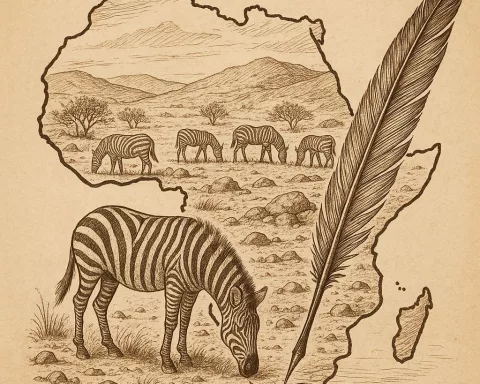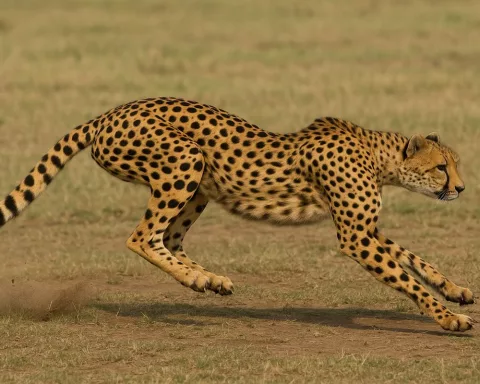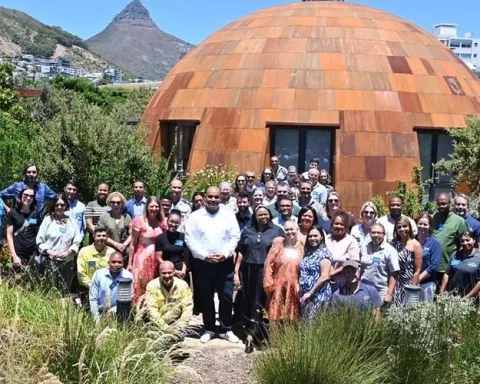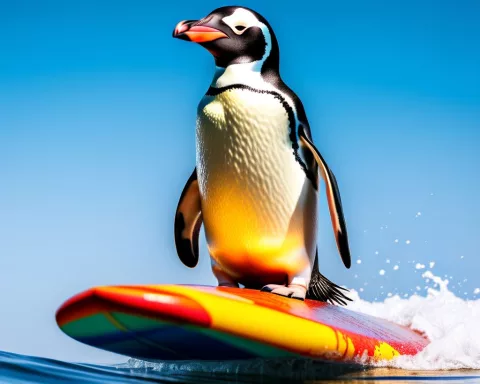A historic agreement has been made to protect the endangered African Penguin from extinction by limiting fishing around six important breeding islands. This deal, reached through cooperation among the government, conservation groups, and the fishing industry, aims to ensure the penguins have enough food to survive. Once a common sight along Africa’s coast, their numbers have dropped drastically due to overfishing. This landmark effort shows that people can work together to balance nature and industry, giving hope for a brighter future for these charming birds.
What is the significance of the agreement to protect the African Penguin?
The agreement to impose fishing restrictions around six key breeding islands is crucial for conserving the African Penguin, which is on the brink of extinction. This historic collaboration between government, conservation groups, and the fishing industry exemplifies effective ecological stewardship and adaptive management crucial for species survival.
Balancing Industry and Nature
In a world where industrial progress often clashes with natural conservation, finding a balanced resolution can be rare. However, a recent agreement concerning the African Penguin, native to South Africa and Namibia’s coasts, demonstrates that such a balance is achievable. The government, seabird conservation groups, and the pelagic fishing industry have collectively decided to impose fishing restrictions around six crucial penguin breeding islands. This groundbreaking decision could prevent the African Penguin from going extinct in the wild, a fate scientists predict could occur by 2035 without intervention.
The African Penguin’s alarming decline paints a distressing picture of environmental degradation. Once a thriving species along Africa’s southern coast, their population has seen a drastic reduction over recent decades. Overfishing, which diminishes the sardines and anchovies penguins rely on, stands as the primary culprit. Conservationists have long argued that the government’s existing measures—closing certain feeding grounds to fishing—were inadequate and biologically ineffective.
In response to these pressing concerns, conservation organizations BirdLife South Africa and the South African National Foundation for the Conservation of Coastal Birds (SANCCOB) turned to legal avenues. They sought to establish a more robust system of closures to secure the penguins’ food sources. As their court case in Pretoria loomed, a settlement preempted the legal battle. Forestry, Fisheries, and Environment Minister Dion George announced a historic agreement that emphasizes cooperation and science-based decision-making.
The Path to a Historic Agreement
Minister George’s involvement illustrates the complexities inherent in modern conservation efforts. Initially, he convened a meeting with all stakeholders, excluding legal representatives. When only the fishing industry participated, he scheduled another meeting allowing legal representatives. This pragmatic approach led to forming a working group aimed at achieving consensus on island closures, benefiting the critically endangered African Penguin.
The newly reached agreement marks a significant shift in conservation strategy, covering several key island closures:
-
St Croix Island (Algoa Bay, Gqeberha) – Once the largest breeding colony, the island’s numbers have diminished to 1,350 breeding pairs by the 2024 season. The new closure aims to rejuvenate this vital colony.
-
Bird Island (Algoa Bay, Gqeberha) – With 1,650 breeding pairs, this island will benefit from a 20km closure radius from its lighthouse, creating a more extensive protected foraging area.
-
Dassen Island (West Coast) – Now the largest breeding colony with 2,300 pairs in 2024, Dassen Island continues under its interim closure per current permit conditions.
-
Robben Island (Cape Town) – Reflecting a ten-year-old Island Closure Experiment, Robben Island will see a significant 20 km fisheries exclusion zone, expanding beyond the smaller Marine Protected Area that existed earlier.
-
Stony Point (Betty’s Bay) – This site now enjoys a new closure applicable to all fishing vessels, covering a substantial foraging area for the penguins.
-
Dyer Island (Gansbaai) – Current permit conditions remain, highlighting the need for ongoing protection.
As George articulated, the agreement is a science-based, cooperative effort to implement effective closures around key breeding islands. These measures, once ratified by the court, will endure for a decade, consistent with a previous decision by Minister Barbara Creecy on August 4, 2023. George underscored that the settlement balances conserving penguin habitats with addressing the fishing industry’s needs.
Broader Implications and Historical Context
This agreement’s significance stretches beyond its immediate impact on the African Penguin. It embodies a broader commitment to ecological stewardship, an ethos deeply rooted in historical and artistic movements that have long celebrated nature. The Romantic era, for example, viewed nature as a sublime force, offering inspiration and solace. Similarly, 19th-century Transcendentalists like Henry David Thoreau advocated for a harmonious coexistence with nature, urging society to respect and protect the environment.
In contemporary times, this ethos has evolved into a nuanced understanding of conservation. It underscores the interconnectedness of ecosystems and the necessity for collaborative efforts to tackle environmental challenges. The African Penguin settlement is a testament to this modern conservation philosophy. It recognizes the penguins’ ecological importance while also considering the socio-economic realities of the fishing industry.
Moreover, the agreement highlights the importance of adaptive management in conservation. Fixed strategies often fall short in addressing the dynamic nature of ecosystems and the numerous factors influencing species survival. By forming a working group and prioritizing scientific research, the parties involved have adopted a flexible, evidence-based approach. This adaptability is crucial for the long-term success of conservation initiatives.
The Power of Collaboration
Reflecting on this landmark agreement, it’s essential to acknowledge the collaborative spirit that made it possible. The convergence of diverse stakeholders—government officials, conservationists, and industry representatives—demonstrates the power of dialogue and negotiation in resolving complex environmental issues. This cooperative effort benefits the African Penguin and sets a precedent for future conservation endeavors.
In conclusion, the settlement to implement fishing restrictions around critical penguin breeding islands represents a significant step in preserving the African Penguin. It underscores the urgent need for proactive conservation measures and the importance of collaboration for sustainable outcomes. As we move forward, championing principles of ecological stewardship, adaptive management, and cooperative conservation remains crucial. This path ensures a future where wildlife and human activities coexist harmoniously, preserving the natural beauty of our planet for generations to come.
FAQ on the African Penguin Conservation Agreement
What is the significance of the agreement to protect the African Penguin?
The agreement is crucial for conserving the endangered African Penguin, which is on the brink of extinction. It represents a historic collaboration among the government, conservation groups, and the fishing industry, showcasing effective ecological stewardship and adaptive management necessary for the species’ survival.
Why have African Penguin populations declined?
The African Penguin population has drastically decreased due to overfishing, which diminishes their primary food sources—sardines and anchovies. This alarming decline has prompted urgent conservation efforts to prevent their extinction.
What actions are included in the agreement to protect the African Penguin?
The agreement imposes fishing restrictions around six key breeding islands, including St Croix Island, Bird Island, Dassen Island, Robben Island, Stony Point, and Dyer Island. These closures aim to secure vital foraging areas for the penguins and support their population recovery.
How does the agreement balance the needs of the fishing industry with conservation?
The agreement emphasizes collaboration between conservationists and the fishing industry, ensuring that ecological needs are met while still considering the socio-economic realities of fishing activities. It reflects a commitment to adaptive management, allowing flexibility in addressing ecological challenges.
How long will the fishing restrictions last?
Once ratified by the court, the fishing restrictions will be in place for a decade, in line with previous decisions made regarding the protection of penguin habitats. This long-term commitment is essential for the success of conservation efforts.
What are the broader implications of this agreement for conservation efforts?
This agreement exemplifies a modern approach to conservation that prioritizes cooperation and scientific research. It highlights the interconnectedness of ecosystems and the necessity for collaborative efforts in addressing environmental challenges, setting a positive precedent for future conservation initiatives.












